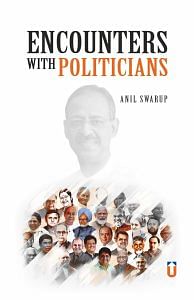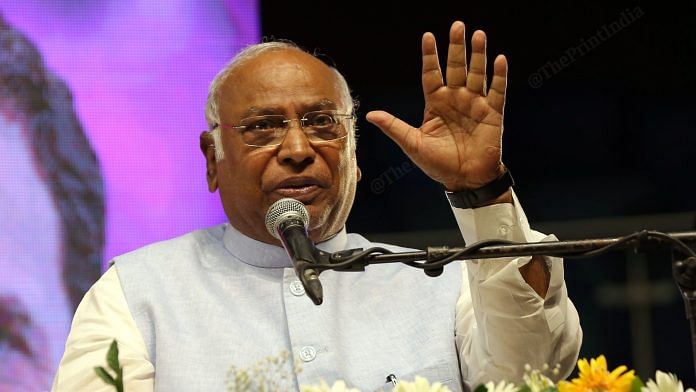The Rashtriya Swasthya Bima Yojana (RSBY), an unprecedented cashless and paperless health insurance scheme for the poorest of the poor, was lauded by the World Bank and the International Labour Organisation as one of the finest social security schemes in the world. This scheme would not have travelled the distance it did but for the indulgence, support and guidance of a visionary leader par excellence like Mr Mallikarjun Kharge. The scheme was arguably the largest health insurance scheme in the world, providing health cover to around 300 million people. It has now been morphed into Prime Minister Jan Aarogya Yojana (PMJAY) as a part of Ayushman Bharat scheme and continues to do well.
I had the privilege of working under the able guidance of Mallikarjun Kharge in the Ministry of Labour and Employment. As Director General, Labour Welfare, I was tasked with implementing RSBY. I distinctly remember the time he spent to fathom the nuances of this complex scheme based on sophisticated technology, and his visits to a number of States to provide it the desired momentum as there were a number of teething troubles. The ease and poise with which he managed to resolve issues was truly exemplary. It inspired all the team members to put in their best. What was truly remarkable about him was his patience. I hardly saw him lose his cool even when there was tension all around. It was not easy to interact with labour leaders who were more often than not attempting to score a point. On each occasion, he gave them a patient hearing and then responded in his own characteristic manner, laced with his inimitable sense of humour.
As the scheme was creating waves both within and outside the country, I was surprisingly transferred out of the Ministry. When I informed him about the transfer, he was extremely upset. He expressed his intention of not relieving me. I really do not know what happened thereafter and what he did, but he ensured that I stayed back to serve the poorest of the poor by way of this scheme.
Finally, on being promoted as Additional Secretary, Government of India, I was posted in the Cabinet Secretariat. Even then Mr Kharge wanted me to continue in the current assignment. However, it was not to be. I lost touch with him for the next few years during the course of which I was promoted again and posted as Coal Secretary, Government of India. The task was to clear the coal mess.
The Supreme Court had announced its judgment. Almost all the coal blocks allocated since the early 1990s stood cancelled. These judgments were pronounced in the months of August and September of 2014. Such coal blocks which were already into production were allowed to continue functioning only till 31
March 2015. The implications were clear. Coal supply was likely to be impacted from 1 April 2015. The country was already reeling under an acute shortage of coal. The stoppage of production would aggravate this problem, and it was against this abysmal backdrop that the Government got moving.
An Ordinance was pushed through to facilitate the early auction of coal blocks so as to ensure that coal production from at least some of these blocks could continue even after 1 April 2015. However, the Ordinance was a temporary measure. Regular legislation had to be passed in the Parliament. This is where the problem lay. The ruling alliance, the National Democratic Alliance (NDA), had a majority in the Lok Sabha but lacked it in the Rajya Sabha. For any Bill to be passed it required support from such parties in the Rajya Sabha that were either not part of the Government or not supporting the Government from outside. This called for greater political management.
Resultantly, a strategy was developed to reach out to the leaders of other parties. Informal interactions were held with their leaders. The affable Arun Jaitley, then the Finance Minister, managed to convince Naveen Patnaik, the leader of Biju Janata Dal. What clinched the issue was the packaging of the idea wherein it was communicated to Naveen Patnaik that the primary beneficiaries, direct and indirect, were the States and not the Central Government. The meeting was held at the residence of Arun Jaitley in an informal setting and it worked.
Mamata Banerjee, the leader of Trinamul Congress Party, was not enamoured of the Central Government as a few in the latter were taking potshots at her. And she had also responded with her usual gusto to those. It is an understatement to say that relations between the Centre and the State were not congenial. Yet, she seemed to understand the implications of agreeing with the proposed legislation in the context of benefits that would accrue to West Bengal. After all, a large number of cancelled coal blocks belonged to it. She also came around and agreed.
However, the real problem was with the leading opposition party, the Indian National Congress (INC). It had got a severe drubbing at the elections. Moreover, the ruling party denied the leader of the INC in Lok Sabha the status of the Leader of the Opposition, as technically it had not won 10 per cent of the seats in the House. The INC and its leaders were very upset. The question now was how to get their support for the crucial Bill.
Approaching its present leader, Mallikarjun Kharge, politically looked very unlikely. As mentioned earlier, I had worked with him in the Labour Ministry not very long ago and enjoyed an excellent rapport with him while working there. He had led the effort to make Rashtriya Swasthya Bima Yojana (RSBY) a success. However, it was an ethical dilemma for me. Could I or should I approach him to support the Bill which was essentially a political decision? After some hard deliberation, I decided to take the plunge in the interest of the work. I apprised the Coal Minister that I was planning to meet Mallikarjun Kharge. He was a trifle amused but agreed that I could give it a try.
I rang up Mr Mallikarjun Kharge’s office to seek an appointment. Instead of responding to my request, the office (most of those in his office knew me) put the call across to him. He was his usual benign self. The moment I requested him for an appointment, he agreed to meet me the next morning at his residence. When I reached there the next morning, he was already waiting for me. He was always a gracious host and treated me to hot ‘pakauris’ (fritters). As we were sipping tea, I broached the issue with him and explained to him how critical the Bill was for the country. He gave me a patient hearing. He seemed to be personally convinced about the necessity of the Bill but expressed his inability to support it purely on account of political considerations. I could appreciate his position.
I then made a request that he had perhaps not expected. I requested him to convince his colleagues in the party to not rush to the ‘Well’ of the Rajya Sabha when the Bill was being discussed and voted upon. Rushing to the ‘Well’ was a ploy adopted by the Opposition to stall the proceedings of the House. Through this approach, the passage of the Bill was impacted. It was by now clear that the Bill would be able to muster requisite support in both the Houses but if the Opposition chose to use this tactic, it would stall the passage of the Bill. He understood the implication of my request. He was candid enough not to promise anything but went on to add that he would try his best.
When the Bill did come up for consideration in the two houses of the Parliament, there was indeed a lot of ruckus, but no one came down to the Well. The Bill was discussed and voted upon. It was one of the rare Bills that saw the light of the day around that time. Mallikarjun Kharge had not promised anything but he had lived up to a tacit assurance. It was heartening to note that there were still such politicians around.
 This excerpt from ‘Encounters With Politicians’ by Anil Swarup has been published with permission from Unique Publishers.
This excerpt from ‘Encounters With Politicians’ by Anil Swarup has been published with permission from Unique Publishers.



